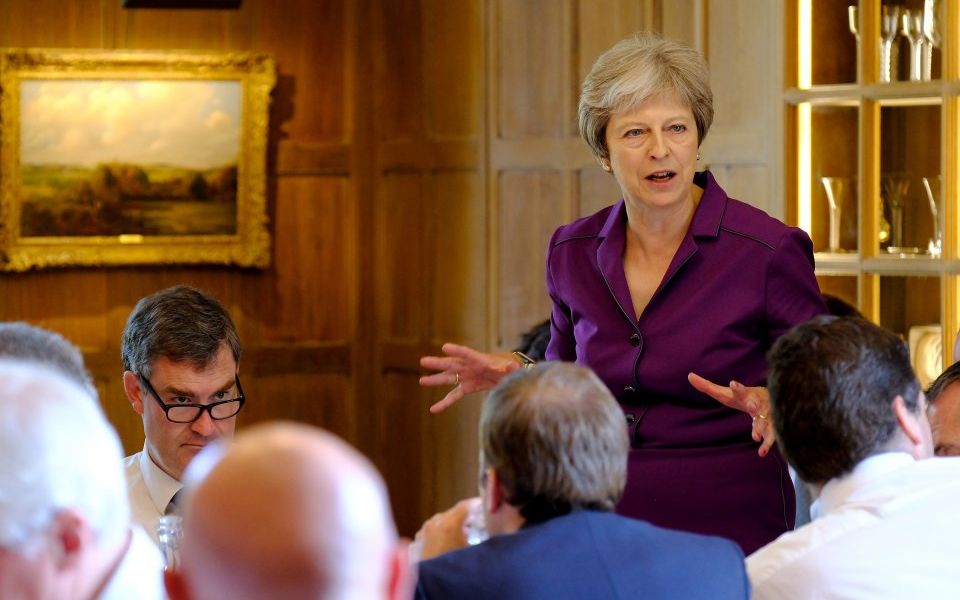Chequers: Here’s what the UK’s Brexit position is on customs, goods, ECJ, standards and the Irish border

The UK government has finally agreed a position on Brexit – but who blinked, and will the EU go for it?
Here are the crucial elements of today's big step forward.
The transition period will remain the same
Whether it was the threat from the ERG, the Prime Minister's concern of a knock-on on the nextGeneral Election or an acknowledgement it would be unlikely to fly with the EU, transition will continue to run from March 2019 until December 2020.
Trade in goods
The government is proposing a "free trade area for goods" which has the benefit of avoiding friction at the Irish border.
This would be based on "a common rulebook for all goods including agri-food, with the UK making an upfront choice to commit by treaty to ongoing harmonisation with EU rules". However it would only cover "those necessary to provide for frictionless trade at the border".
The UK wants to retain the right to diverge from EU rules "recognising that this would have consequences".
Services
Services would not be covered by this arrangement, under the UK's proposals.
The government is planning to strike a separate deal with "regulatory flexibility" where required. But the proposal admits this means "the UK and the EU will not have current levels of access to each other’s markets".
Standards
Under the current proposals, the UK will commit to putting together a common rulebook on state aid, and establish "cooperative arrangements between regulators on competition". The two sides would also agree to maintain high regulatory standards for the environment, climate change, social and employment, and consumer rights.
The ECJ
Law will be interpreted by respective courts with "due regard paid to EU case law in areas where the UK continued to apply a common rulebook".
The proposal once again pushes the concept of a joint committee and binding independent arbitration, which would accommodate the role of the Court of Justice of the European Union as the interpreter of EU rules. However, the proposal insists "the court of one party cannot resolve disputes between the two".
Customs
Gone is max fac, gone is the new customs partnership (NCP) – at least in name. In their place is the facilitated customs arrangement or FCA, which the government argues would "remove the need for customs checks and controls between the UK and the EU as if a combined customs territory".
The new system mimics the NCP in that the UK would collect tariffs on behalf of the EU and "enable the UK to control its own tariffs for trade with the rest of the world". It claims that businesses would pay "the right or no tariff – in the vast majority of cases upfront, and otherwise through a repayment mechanism".
The Irish border
Through these various proposals, the government believes there would be no need for a hard border in Ireland, and that there will be no need for the backstop to be deployed. However, the proposals should also pave the way for the backstop to be agreed, the government says.
No deal
Cabinet spent a good couple of hours discussing preparations for a no deal today. However there is little detail of what exactly those plans are. All the proposal says is that it is "responsible to continue preparations for a range of potential outcomes, including the possibility of ‘no deal’.
"Given the short period remaining before the necessary conclusion of negotiations this autumn, we agreed preparations should be stepped up," it adds.